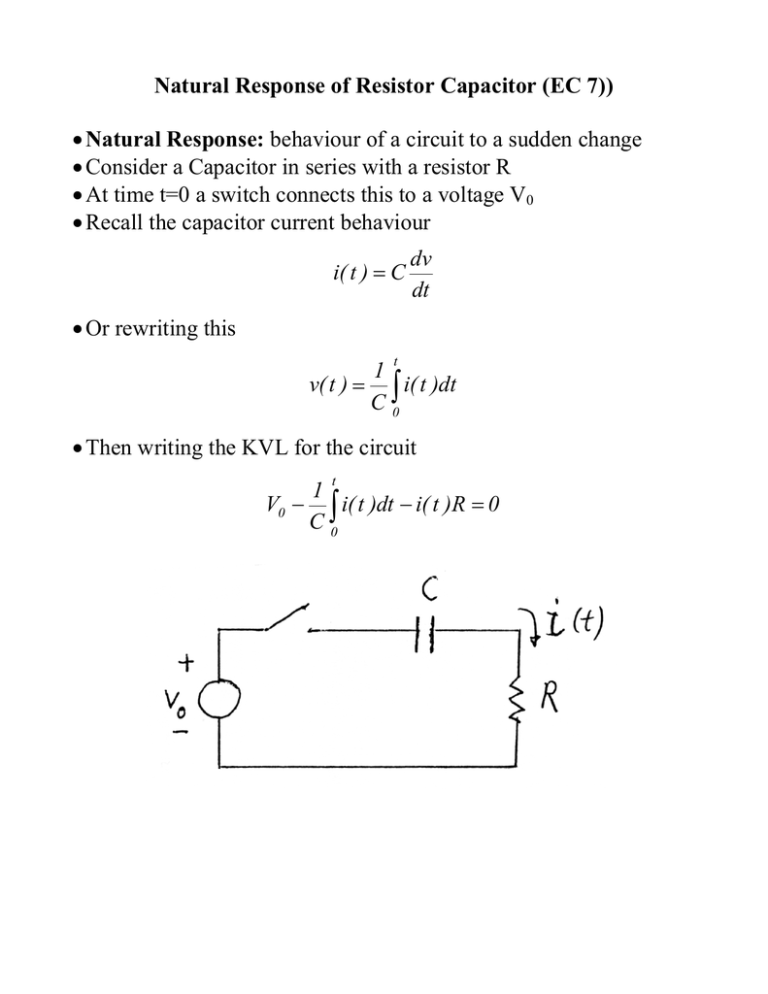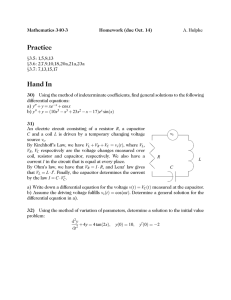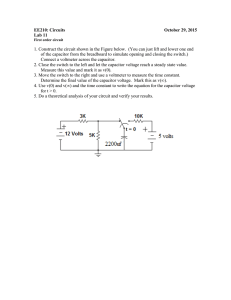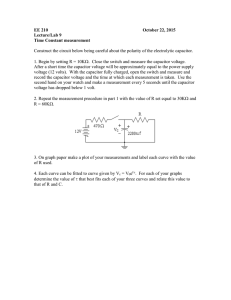Natural Response of Resistor Capacitor (EC 7)) • Natural Response
advertisement

Natural Response of Resistor Capacitor (EC 7)) • Natural Response: behaviour of a circuit to a sudden change • Consider a Capacitor in series with a resistor R • At time t=0 a switch connects this to a voltage V0 • Recall the capacitor current behaviour i( t ) = C dv dt • Or rewriting this t 1 v( t ) = ∫ i( t )dt C0 • Then writing the KVL for the circuit t 1 V0 − ∫ i( t )dt − i( t )R = 0 C0 Natural Resistor Capacitor Response: Differential Equations • Differentiating with respect to time R di( t ) 1 + i( t ) = 0 dt C • This is the "Differential Equation" form of the KVL equation • Using the integration solution method for DE’s • To solve get into integral form 1 1 = − di dt ∫ i( t ) RC ∫ Natural Resistor Capacitor Response: Solutions 1 1 di = − dt ∫ i( t ) ∫ RC • Integrating both sides to solve ln(i( t )) = − t +A RC • Where A is a constant of integration • Taking the exponential of each side • Then setting at time t=0 call the current I0 then t i( t ) = I 0 exp − RC • The time constant is τ = RC • This is an exponential decay of current • Thus at as time goes to infinity Capacitors act as opens • Current goes to zero Natural Resistor Capacitor Response: Initial Conditions • With the voltage suddenly applied • Eventually C becomes charge to voltage source level • At time zero Capacitors act as short circuits • Thus for t=0 can ignore capacitor, so I 0 = i( t = 0 ) = V0 R • Thus the current equation is i( t ) = • Initial slope of line of line is V0 t exp − R RC I V di( t = 0 ) = − 0 = 20 dt τ RC Natural Resistor Capacitor Response: Voltage • Final voltage on Capacitor matches the V source VC ( t → ∞ ) = V0 • Voltage across the capacitor from the KVL vC ( t ) = V0 − i( t )R = V0 − V0 t t exp − R = V0 1 − exp − R RC RC • Thus voltage rises to equal the voltage source expodentially • Same equations for C charge to initial voltage plus R with no V • Only difference is final voltage on Capacitor now zero • Both called "RC circuits"


